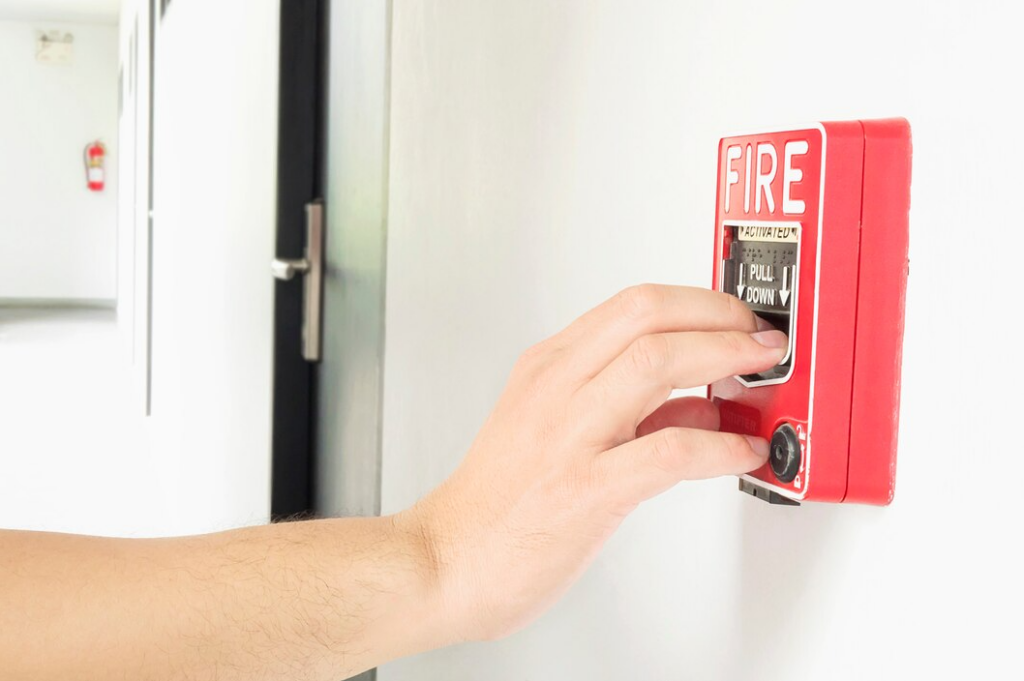Fire alarm panel is a device that consolidates all fire alarms, detectors, monitors and other appliances and equipment in a home with a view of guaranteeing that once there is fire, the response is immediate. A study done by the National Fire Protection Association, NFPA shows that home fire alarms have greatly helped in the prevention of fire fatalities through giving early signals. However, like any system, a fire alarm panel in house systems can face issues that compromise safety. Read more below to know common issues and how you can tackle them so that your fire alarm system works as expected.
What Is a Fire Alarm Panel?
Fire alarm panel is the control center of your fire alarm system that receives status information from smoke detectors, heat detectors, and pull stations.
It sounds horns, alerts the monitoring service, and gives the origin of the alert signal.
Why a Fire Alarm Panel is Key
- Promotes timely alarms in case of a fire incident.
- Empowers disaster relief organizations to minimize damage resulting from disasters by responding to incidents in a shorter amount of time.
- Gives homeowners and their families a sense of relief or security.
Problems with Fire Alarm Panels
1. False Alarms
- Causes: Interference by dust, insects, or steam at times affects the smoke detectors.
- Fix: Clean them often and do not install any detectors near kitchen or bathroom.
2. Alarm Panel Not Responding
- Causes: Problems associated with electricity supply, poor wiring, or a dead backup battery.
- Fix: Correct the bad connections, get a new battery or seek the service of an electrician.
3. Faulty Wiring
- Causes: Damaged wires by aging, improper installation, or physical work that caused some damage to their insulation.
- Fix: Check for the usual signs of wear and tear on wiring as well as inspect the connections in the electrical panel, where necessary.
4. Low Battery Warnings
- Causes: Dead or run down backup batteries.
- Fix: Replace batteries frequently and ensure that they are right for your fire alarm panel.
5. Malfunctioning Sensors
- Causes: Defective, stained or ripped sensor surfaces.
- Fix: Check and clean the sensors frequently and if they are faulty remove them and replace with new ones.
6. Failure in Communication with the Monitoring Service
- Causes: Technical communication problems such as break down of the internet or phone lines.
- Fix: Look at the communication line and use the service provider, if needed, to make adjustments.
A Guide on Repair and Maintenance of Fire Alarm Panel
1. Regular System Testing
Check your fire alarm panel and sensors at least on a monthly basis to determine whether they work properly.
This is good practice because it implicates that one should follow the manufacturer’s recommendations on testing procedures.
2. Clean Detectors and Sensors
Do not clean smoke detectors with water, instead, dust them with a soft brush or vacuum cleaner.
Do not expose the sensors to strong chemicals that may hamper it’s correct functioning.
3. Check Power Supply
Make certain you connected the fire alarm panel to a constant and efficient source of power.
Backup batteries should also be replaced once a year or more frequently if needed.
4. Upgrade the Connections on the Electrical Panel
If your home’s electrical system cannot handle using modern devices, then you should consider having your electrical panel replaced.
Upgrading is important so as to guarantee sufficient and consistent electric power to your fire alarm system.
5. Professional Inspection
It is recommended to invite a certified electrician or a fire safety officer for an annual inspection..
It is important to solve any occurring problem immediately in order to achieve high reliability of the system.
When To Upgrade Your Fire Alarm Panel
Outdated Technology
Older panels might not contain some or all the features such as wireless connectivity and intelligent home compatibility.
An upgrade is needed to cater the modern devices and improve the general functionality of the phones.
Increased False Alarms
High number of false alarms are usually a sign that the panel is defective or the sensors are old.
These problems and some more can be solved by upgrading the panel and make it more reliable.
Expanded Home Features
UPs may need a more sophisticated panel if renovations or additions result in more sensors coming into the system.
An updated panel provides adequate coverage to your entire house.
Smart Home Systems
Multiple protocols for fire alarms are available for use in today’s homes, and are capable of working with smart home systems.
With upgrading you can operate the fire safety system via the smartphone or voice control.
Conclusion: Protect Your Home with a Reliable Fire Alarm Panel
Your home is safe and secure if the fire alarm panel in house installed is well maintained. By noting some of these problems, we are able to avert emergency situations and guarantee that the system is up to par. If you’re considering an upgrade or need professional assistance, trust Electrical Repair Myrtle Beach for expert guidance and services.
FAQs
How frequently should I take my fire alarm system?
Every fire alarm system should be checked once a month to see if it is working or not.
Can I fix false alarms myself?
Yes, cleaning detectors and checking through that they are placed in the right manner would go along way to minimizing cases of false alarms. Nevertheless, seek for an expert help if the problem continues.
When is the right time to change the fire alarm panel?
Replace your panel if it is old, often breaks down, or cannot support the increased functionality of your home.
How much does it cost to upgrade an electrical panel for a fire alarm system?
The price is different but normally for simple panel or a small one or two – three sided it can cost around $1 000-$3 000.
Fire alarm panels have some incompatibilities with smart home systems are they suitable for use with smart home systems?
Present day boards can easily connect with home control systems, giving it improved command and checking.
What should I do to make certain my fire alarm panel is efficient?
This is the reason reliability calls for periodic testing, cleaning and good professional inspection.




